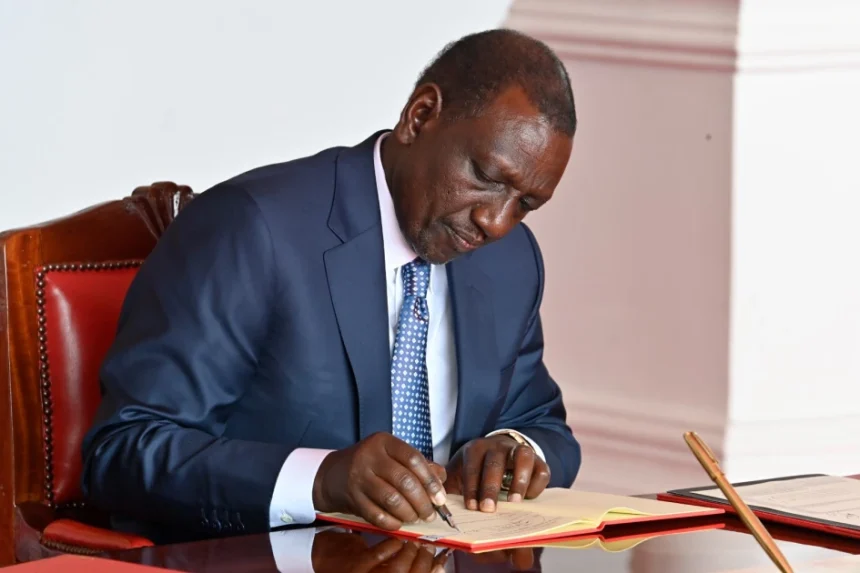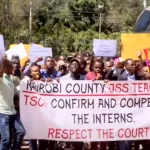President William Ruto has announced that Kenya will in future shift away from importing shoes and instead focus on bolstering local footwear manufacturing.
Speaking in Bungoma County on Saturday when he led the 61st Madaraka Day celebrations, Ruto underscored the government’s commitment to developing the leather sub-sector to bolster competitive export industries.
“In this connection, we have committed to implement strategies aimed at increasing incomes from Ksh.15 billion to KSh.120 billion a year, multiplying job opportunities from 17,000 to 100,000 and raising annual footwear production from the current 8 million to 36 million pairs worth Ksh.72 billion by 2027,” said President Ruto.
“I have made this commitment, that shortly we will not be importing shoes from anywhere. We will be wearing our own shoes; made in Kenya, using our own leather.”
According to Ruto, it is imperative for Kenya to shift its leather value chain from primarily exporting raw materials and semi-processed products to developing internationally accepted and competitive finished leather and leather products.
“We are developing local capacity to handle hides and skins to provide quality raw material, tanning as well as the local manufacturing of finished leather goods such as shoes, bags, and belts,” he said.
President Ruto subsequently pledged financial commitments aimed at enhancing the leather sub-sector. Among these commitments is the allocation of Ksh. 400 million for the upgrade of the Ewaso Ng’iro South Development Authority’s leather factory.
“Ksh.200 million of the funds will be used to acquire modern equipment, Ksh.100 million to build a footwear factory and Ksh.100 million to mop up hides and skins. Machinery for increasing processing capacity at the factory has already been procured and installed. To supply quality hides and skins, 703 flayers have been trained and subsidised flaying equipment provided to 680 slaughter points,” he said.
“At the same time, the construction of the Kenya Leather Industrial Park at Kenanie, Machakos County, is 85% complete. This park will have a common effluent treatment plant, 2 tanneries, 2 leather manufacturing plants and 100 acres for investors to set up leather factories by the end of the year.”



